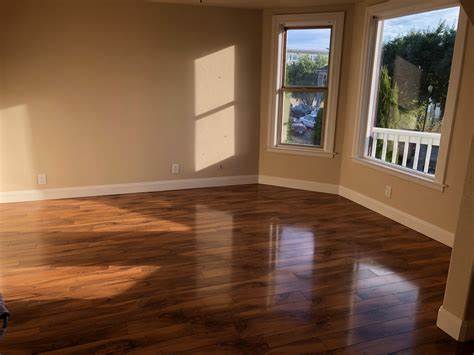Many times, people cringe when they mention the "landlord." In some cases, this tendency to fear is worthwhile. Although many landlords are responsible and caring people, many owners have evaded their responsibility to provide legally prescribed care obligations for tenants. The landlord chooses to take this responsibility, regardless of the relationship with the lessee, and must comply with the law when repairing property damage.
What if the landlord does not repair the house in time?
If your landlord is not in a hurry to repair, you should take some of the early steps below.
Consult your lease. After noticing any damage or problems, your first step is to consult your lease for the correct procedure for handling the repair request. Follow the instructions on the lease. Find out if your repairs are included in the rental terms. For example, if you have damaged your property due to your own negligence, the owner may not be responsible for repairs. If your lease requires all repair requests to be processed in writing, make sure you have sent them. Although this may seem like a red tape, most states do not allow landlords to enter the property without a written service request or a 24-hour written notice to the tenant that they plan to enter the property for any reason. It is always in your best interest to send the request in writing and indicate the date of the request. Always keep a copy for your personal record.
Learn local laws. You must have a firm understanding of the laws of your state. Almost every state has a Habitat Assurance Act that clearly states that any landlord is obliged to provide tenants with suitable housing for their residence. Such state laws protect tenants from potential slum lords. State law takes precedence over written and verbal contracts and agreements. If the necessary repairs make the house uninhabitable, regardless of your lease or contract terms, most state laws are on your side. In some states, such as Florida, if the repair fails, the lessee has the right to withhold the rent paid to the landlord. In other states, it is illegal to detain rent. If you are not familiar with the laws of your state, it is best to consult a legal professional in your state.
Send a letter of certification. If you have taken the steps in the lease to fix the problem, but the landlord has not taken action, it is time to issue a formal (or second official) written repair request to the landlord. The second letter should be accompanied by a copy of the original application (if retained) and mailed by registered mail with a return receipt. This will give you a legal document proving that the owner has filed and received the request. It is a crime for any landlord to attempt to expel you for repairing a home. If you suspect that you have such a ruthless landlord, you must communicate with them in writing to protect yourself.
Things to consider before upgrading
If your landlord is very unhelpful, you may need to take some rather rigorous measures. Before this happens, you should check your situation to see if these measures are necessary. There is a major livability issue. This problem definitely threatens health or safety. Minor annoyance or defects don't mean you should take action on your landlord.
You have not caused any harm. If you or your guests have caused this problem yourself, you have no reason.
You follow all the rules to inform your landlord. You should tell your landlord this question and give them a reasonable opportunity to resolve it. Some state laws require at least notice if the problem is not an emergency.
You are not in arrears with rent. If you have a plan to withhold the rent or deduct the cost of the repair from the rent, you can't default on the rent. Most areas that allow for withholding rents require you to pay rent.
You are willing to lose the lease. Taking legal action against your landlord may not make you like them. Most states have laws protecting tenants from retaliation such as raising rents or expelling, but some states do not provide these protections. Know your laws and remember this before doing anything.
Find More

Welcome to HouseRentUS.com, your trusted online rental marketplace. We simplify the
connection between renters and property listings without participating in rental transactions or charging
users any fees. For a cost-free, efficient search for houses, apartments, and rental homes, our platform is
your go-to resource to find affordable housing across the USA.
We sustain our services through ad partnerships, including Google, ensuring a user-centric experience. By
interacting with ads, you support our mission to enhance your property search journey. Thank you for your
understanding and engagement.



